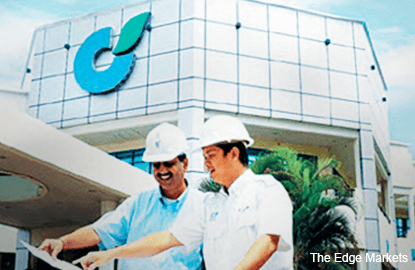
KUALA LUMPUR (Oct 23): Gas Malaysia Bhd will be implementing the incentive-based regulation (IBR) framework starting next year that will enable the company to be “financially neutral” with respect to gas costs in the future.
In a filing to Bursa Malaysia yesterday, Gas Malaysia said the government has announced that the implementation of IBR by the company will take effect from Jan 1, 2016.
“With respect to its implementation, the IBR shall first be on a trial run period in 2016, following which, the first regulatory period will run for the next three years from 2017 until 2019,” it said, adding that Gas Malaysia has made sufficient preparation to ensure a smooth transition to this new regulatory framework.
The IBR is a form of economic regulation aimed at incentivising Gas Malaysia for better operational and financial performance, whilst regulating the natural gas tariff, the statement read.
“In support of the liberalisation of natural gas industry, which is to gradually align current piped gas towards market prices, the IBR is introduced to promote efficient resources allocation and usage, and sustainable financial performance,” said the company.
Gas Malaysia said the IBR promotes cost-efficient tariff structure for the customers, which also bodes well for the company as it is designed to ensure earnings clarity.
With the IBR implementation, Gas Malaysia said it will be "financially neutral" with respect to gas costs going forward.
In a note dated Sept 8, MIDF Research said Gas Malaysia will benefit from IBR as it will provide more earnings clarity moving forward.
Since the IBR is based on a return-on asset mechanism, MIDF said Gas Malaysia will be assisted in achieving a certain amount of revenue based on the value of its regulated assets, operating expenditure (OPEX) (inclusive of gas cost), depreciation and tax incurred for the period.
“Hence, since its asset base and OPEX will naturally grow in time, it is safe to assume that Gas Malaysia’s revenue will also grow in tandem,” said the research house.
However, in a June 18 note, CIMB Research said the IBR have a negative impact on Gas Malaysia.
“This is negative for Gas Malaysia as its earnings could drop under the IBR’s pricing framework. If the IBR is implemented on Jan 1, 2016, our best case scenario estimates that the company’s net profit in 2016 will be 7% lower than that in 2014, while the worst case estimates a much larger decline of 40%,” it added.
"We also downgrade [Gas Malaysia] to 'reduce' from 'hold', as IBR could lead to a sharp earnings erosion," said the research house.
In a later note dated Sept 8, CIMB Research maintained its 'reduce' call, saying there is no guarantee that Gas Malaysia will outperform the performance standard set in the IBR.
"In fact, an underperformance could result in penalties and drag its ROIC (return on invested capital) below the allowable WACC (weighted average cost of capital). We maintain our Reduce call on Gas Malaysia given the significant earnings and downside risks arising from IBR. Weaker earnings and the potential ensuing cut in dividend are the key de-rating catalysts," it added.
Gas Malaysia closed 1 sen or 0.41% higher at RM2.43 yesterday, for a market capitalisation of RM3.12 billion.
(Note: The Edge Research's fundamental score reflects a company’s profitability and balance sheet strength, calculated based on historical numbers. The valuation score determines if a stock is attractively valued or not, also based on historical numbers. A score of 3 suggests strong fundamentals and attractive valuations.)